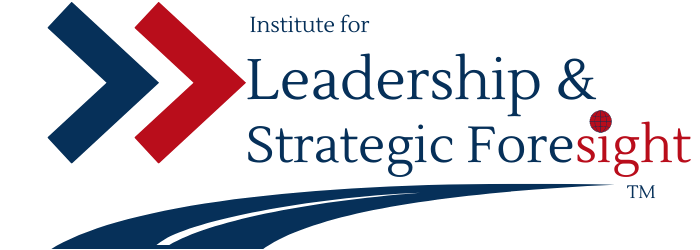Leaders must possess a global mindset, i.e., the mindset to think globally and adapt where needed while assisting the development of an embodied leadership that is authentic to their true selves.
Globalization has permeated the world and is quickly restructuring the world’s economic, political and technological landscape. As a significant part of the process, new technologies are not only rapidly changing the ways companies do business, governments serve people, and people live their lives, but also globalization increases the complexity of how resources are utilized, labors are organized, and products are produced and marketed. This rapidly evolving world demands a new kind of leadership that can adapt and thrive in this environment. The leaders who cannot reshape themselves will fade and disappear. The characteristics of that new leadership in today’s global environment are what we are briefly discussing here.
MANUFACTURE AND INTERNATIONAL TRADING.
Consider manufacturing processes. Take, as an example, making a pair of ordinary blue jeans. The production starts with picking cotton from Peruvian or Ugandan fields. The cotton is shipped to China for finishing, then to Malaysia to be spun to yarn. The yarn is shipped to Thailand to be woven to fabric, then to Singapore to be cut, before it is sent to Indonesia for sewing. Before the blue jean is finished, several more items must be added: labels from India, zippers from Hong Kong, thread from Malaysia, and rivets from Taiwan.
Managing such a production involves making decisions such as buying and storing materials and managing employees from multiple countries, solving problems in transportation and import-export processes, securing loans, dealing with currency exchange and payments, and handling tax laws and government regulations of different countries, not mentioning the unpreventable incidents such as accidents, natural disasters, and employer-employee conflicts. In such a complex business environment, leadership means making swift and decisive decisions and managing all the parties involved in the supply and demand chains.
INNOVATION.
When the world is becoming a leveled playfield for competition, innovation is essential for companies to achieve sustained success to either protect the existing market share or enter into a new market territory. Innovation creates value and introduces changes to the current technology and business models. Innovation teams must consider the factors such as the market conditions, potential customers, competitors’ strategies, resources to support innovation, especially proper networks to carry out the innovation.
The senior leadership is the driving force for innovation. They are responsible for defining the innovation objective, choosing innovation strategies, building and maintaining an innovative culture, aligning innovation efforts, mitigating negative antibodies, allocating the resource, forming collaborations, and designing proper incentives for innovation to be effectively executed. [1]
POLITICS AND POLICY-MAKING.
Globalization has also changed how people participate in politics. More and more people are involved in public policy-making. Interest groups from private corporations to state and local governments even foreign corporations are engaged in lobbying the federal government to make policies in their favor. With new technologies especially those in information technology and communication, interest groups can quickly forecast the election results and mobilize large-scale grassroots activities to affect the election outcome. In the same way, private organizations must also consider the inputs of interest groups such as investors, banks, employees, stockholders, unions, customers in their decision making. Being a leader in either the government or a private entity entails the ability to communicate, understand, negotiate, and balance the interests of a variety of parties.
FOUR BORDERS TO BE CROSSED.
While the world becomes more interconnect and competitive, human capital, especially the executive talent, becomes the most scare resource organizations seek after. The leaders who can make a difference in this new world context, as Lori Collins, executive coach and leadership expert highlighted, are those “who can span different cultures, economies, politics, and geographies; who can think systemically across multiple networks, deal with rapid change and layers of complexity; and who can speak the language of global business.” [2] To be more specific, today’s leaders must be able to cross four different borders: cultural, functional, psychological, and political.
Cultural border. A cultural border connotes a barrier constructed by a dominant side to guard its political power, cultural knowledge, and privileges. As organizations expand their businesses globally, their leaders must lead the expansion by crossing the cultural borders to gain the rights and opportunities in the new cultural territory through building bridges of trust and acceptance.
Functional border. In a global market, leaders frequently assume new leadership functions. This often happens when a leader is rotated to a new position, or promoted to a higher one when he or she must lead a new development such as opening a new market or starting a new business.
Psychological border. It is often a frustration for someone to fill a role that he is not mentally prepared for. Tim Cook was promoted to the top leadership position at Apple after Steve Jobs passed away in late 2011. As the company’s COO, Cook had already demonstrated his ability to manage the most valuable company in the world. In his new role, Cook was highly stressful to live out of the shadow of Steve Job to establish his own distinctive authority as CEO, while being true to his own personality and values.
Political border. In a broad sense, an organization is a political system that defines peoples’ interests and also their roles, functions, and responsibilities. To coordinate the effort of the organization toward the desired goal, leaders must not only effectively address the interests of all the people but also constantly adjust roles, responsibilities, and relationships. Successfully leading the change requires the leaders to cross many political borders.
LEADERS WITH A GLOBAL MINDSET.
To be able to cross these borders and fulfill leadership functions, leaders must possess a global mindset, i.e., the mindset to think globally and adapt where needed while assisting the development of an embodied leadership that is authentic to their true selves.
Professor Mansour Javidan defines a global mindset as “the ability to perceive, analyze, and decode behaviors and situations in multiple cultural contexts and to use that insight to build productive relationships with individuals and organizations across cultural boundaries.” [3]
The global mindset is the foundation of other global leadership qualities that create values and take responsibilities in a global environment. Essential aspects of global mindset include intellectual, psychological, social capital, and judgment withholding.
Intellectual capital. Intellectual capital refers to the ability to understand how the business operates worldwide, e.g., how global customers behave, how the competitors target customers’ needs, and how strategies function in different circumstances. People with high intellectual capital appreciate and embrace the differences across cultures, and they are willing to build deep connections with the people different from themselves. They can interpret facts, understand different perspectives and grasp the realities in cross-cultural situations. They also show an active interest in the history, culture, political, and economic systems of the other parts of the world. They have insights into how the business works and can find out where the barriers and obstacles are and how they block the company from functioning effectively. They can quickly assume the leadership functions in new cultural and political contexts and achieve the desired organizational results.
Psychological capital. Psychological capital refers to the mental capacity and emotional stability to be “courageous in a volatile or chaotic environment, to be comfortable with ambiguity and stress, and to be confident to try new approaches or solutions in unfamiliar situations.” [2] People with high psychological capital are receptive to new ideas and experiences, enjoy working in a foreign context, can thrive in an unpredictable and complex environment. They have the wisdom to take the calculated risk to solve difficult problems, seize new opportunities, and achieve challenging goals. Studies show that developing psychological capital can increase work engagement and organizational commitment, therefore boost self-image and self-efficacy and the confidence to succeed in the midst of unstable and even chaotic business situations. These people are more likely to be competent leaders in an ambiguous situation.
Social capital. Social capital refers to the capability to build trusting relationships with people different from themselves. People with high social capital can empathetically engage others. They have a high inclination to listen. They can bring together divergent views, develop consensus, and maintain credibility. They can build and sustain an authentic relationship and productive networks across national and cultural boundaries. They can make strong leadership teams, address the needs and desires of their constituents, and enlist them to strive for the common goal. In the meantime, they can build the bridge to construct an authentic relationship with those on the supply and customer chains. They can gain support from the governing board, investors and other interest parties.
Judgment Withholding. Others also term judgment withholding as “Suspending Judgment.” This refers to the ability to put aside opinions and assumptions to understand what is being expressed in order to make intelligent and informed decisions. It not only enables better decision making, but also facilitates a process that allows a sufficient exchange of information, opinions, beliefs, and values, therefore leads to mutual respect and strong bondage. While we all tend to focus on the facts that support our beliefs and discount and misinterpret those that endorse other party’s positions, suspending judgments allows leaders to give a fair evaluation, especially in a cross-cultural context. People who can suspend judgment can build strong teams and facilitate trust and mutual understanding with either the collaborators and competitors in a turbulent global environment.
CONCLUSION
In sum, global leaders are characterized by their tendencies to think across borders, appreciating cultural diversity, developing technological savvy, building partnerships and alliances, and sharing leadership. They are committed to self-awareness and pursuing self-development; additionally, they are able to perceive and see the world from other’s perspective.
Leaders make a difference and bring change to organizations. Globally adaptive leaders can capitalize on the opportunities of global scales so they can increase productivity, reduce the use of resources, produce higher value for their people and organizations, and bring prosperity to their communities.
—
References and Notes:
[1] Davila, T., Epstein, M., & Shelton, R. (2012). Making innovation work: How to manage it, measure it, and profit from it. FT press
[2] Collins, L. B. (2014). Beyond Borders: Developing Globally Adaptive Leaders: A powerful new framework for helping leaders navigate global challenges and develop global leadership capacity. Cambria Consulting, Inc. Retrieved from https://www.cambriaconsulting.com/wp-content/uploads/whitepapers/78259-global-leaders.pdf
[3] Cabrera, A., & Unruh, G. (2012). Being Global: How to think, act, and lead in a transformed world. Harvard Business Press.

